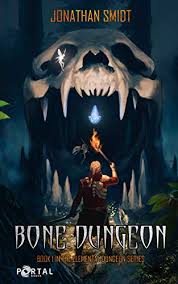For those unfamiliar with the terms and conventions of xianxia cultivation fantasy, this copy of the Immortal Mountain's guide to the terminology might help.
Fresh on the heels of his acceptance into the inner circle of the Verdant Green Waters
chi cultivation sect, Long Wu Ying returns in Tao Wong's
A Thousand Li: The First Stop. Wu Ying quickly learns that while greater status can open more doors to knowledge and enlightenment, greater responsibilities are also demanded of him. As he takes the first steps to discovering his unique Way, Wu Ying struggles to find the right balance between his studies and the missions that grant him the contribution points needed to pay for his stories. However, outside the idyllic sanctuary of the Verdant Green Waters sect, war drums are beating, and the sect Elders lead Wu Ying and his friends on a desperate gamble needed to prepare for upcoming battles.
In
The First Stop, Wu Ying switches from the well-defined goal of proving himself better than the nobles bullying him to the more open-ended trial-and-error of finding his life's Path. Each member of the sect has an occupation that both develops his or her Way and supports the sect materially. And, as Tao Wong wryly points out, every occupation feels the need to add 'spirit' in front of its name to make it more prestigious. For the first time in Wu Ying's life, he is judged solely on his merits as he diligently navigates his wandering way, by commoner and noble cultivator alike, although it takes months and quiet correction before he realizes that the nobles in the sect aren't judging him.
Of course, the nobles this round are easier to get along with--and easier on the eyes, as Wu Ying's kindly and refined medicine compounding tutor Liu Tsong and his spirited martial arts partner Li Yao both prove. Both women are merely setting out subtle hints at this stage, and if Wu Ying has yet to notice, he can be forgiven as progression along the Way requires studious diligence. It's admirable to see such a slow burn. Most
xianxia stories embrace wholeheartedly the wish-fulfillment aspects of the story. Another protagonist in Wu Ying's footsteps would already be tilting his lance towards the sect's top beauty, the ethereal "Fairy" Yang Fa Yuan.
That restraint is evident throughout this second book. A Thousand Li is not a Chosen One fantasy, so Wu Ying does not need to be a
wunderkind. In
The First Stop, Wu Ying's
chi cultivation progression is slowed down, and the admirable tendency to ground the abstract into the tangible permeates more than just
chi cultivation magic. Whether martial arts strikes, blacksmith hammer blows, the turning of compost heaps, or identifying medicinal and poisonous plants, there are tangible descriptions and a sense of effort to each act. One of
xianxia's genre weaknesses is that many of its authors treat items and actions as though they were selected via a
Final Fantasy RPG menu. Tao Wong brings these abstract and throwaway ideas fully into the world for his characters to sense instead of just consume. This grounds the abstract and increasingly gamified Taoist concepts into understandable concrete actions. Leveling up isn't the abstract collection of experience or
mana/
chi, it is the forcible cleaning of clogged
chi meridians--often accompanied by a moral, perceptual, or physical breakthrough as well. This rare appeal to verisimilitude makes the A Thousand Li series an excellent introduction to cultivation fantasy, especially those who may be drawn in by the "Hogwarts meets
The 36th Chamber of Shaolin" settings of many a
xianxia fantasy.
While mostly an idyllic exploration of Wu Ying's Path,
The First Stop harbors an underlying foreboding as events outside the sect's cultivation sanctuary are escalating, both in the natural and in the supernatural. While the Verdant Green Waters sect makes desperate and costly gambles to keep with the cultivation and enlightenment arms race, it won't be until the upcoming
The First Battle to see if these preparations will be enough. Whatever may happen, it is certain that Wu Ying, Li Yao, and the rest of their friends will be on the front lines of the upcoming war.










